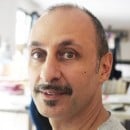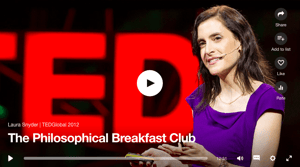The story told by the historian of science Laura Snyder is one that starts a long time ago. To be precise, it begins on June 24, 1833, when the British Association for the Advancement of Science held its third meeting at Cambridge University. That day, the poet Samuel Taylor Coledridge, stood up and said “You must stop calling yourselves natural philosophers”.
It was at this precise moment that the separation between philosophy and science was declared. And that is not all. A young Cambridge scholar called William Whewell gave the following reply to Coleridge” “If ‘philosophers’ is taken to be too wide and lofty a term, then, by analogy with ‘artist,’ we may form ‘scientist.’ ” This was the first time the word scientist was uttered in public. Prior to that meeting, those who studied the natural world were considered talented amateurs. After this, they were scientists, professionals with a particular scientific method, goals, societies and funding. This revolution comes down to four geniuses: Charles Babbage, John Herschel, Richard Jones and William Whewell.
As Laura Snyder recalls:
Charles Babbage invented the first mechanical calculator and the first prototype of a modern computer. John Herschel mapped the stars of the southern hemisphere, and, in his spare time, co-invented photography. Richard Jones became an important economist who later influenced Karl Marx. And Whewell not only coined the term scientist, as well as the words anode, cathode and ion, but spearheaded international big science with his global research on the tides. In the Cambridge winter of 1812 and 1813, the four met for what they called philosophical breakfasts. They talked about science and the need for a new scientific revolution. They felt science had stagnated since the days of the scientific revolution that had happened in the 17th century. It was time for a new revolution, which they pledged to bring about, and what’s so amazing about these guys is, not only did they have these grandiose undergraduate dreams, but they actually carried them out, even beyond their wildest dreams”.
At their “philosophical breakfasts” our four champions of science were convinced of the inductive scientific method, proposed approximately 200 years previously by Francesco Bacone, and subsequently, by Isaac Newton. This is a method that starts from observations and experiments and moves to generalizations about nature called natural laws, which are always subject to revision or rejection should new evidence arise.
The convictions of these four men, which were presented to natural scientists, university students and public opinion for scrutiny and awareness, produced momentous changes.
The members of the club contributed to the formation of several new scientific societies, including the British Association. These new societies required that members be active researchers publishing their results. They reinstated the tradition of the question and answer session after the reading of scientific papers, which had been discontinued by the Royal Society as being ungentlemanly. And for the first time, they gave women a foot in the door of science.
And that is not all. On the advice of the club, the British Association began to use the extra money generated by its meetings to give grants for research in astronomy, the tides, fossil fish, shipbuilding, and many other areas. These grants not only allowed less wealthy people to conduct research, but they also encouraged thinking outside the box, rather than just trying to solve one pre-set question.
Hence, modern science was created as a result of those philosophical breakfasts. However, as Laura Snyder reports, there is also a flip side. This revolution involuntarily produced the current separation between science and the rest of culture. And it is time that this separation is overcome.
Charles Darwin said, “I sometimes think that general and popular treatises are almost as important for the progress of science as original work.” In fact, “Origin of Species” was written for a general and popular audience, and was widely read when it first appeared. Darwin knew what we seem to have forgotten, that science is not only for scientists.

